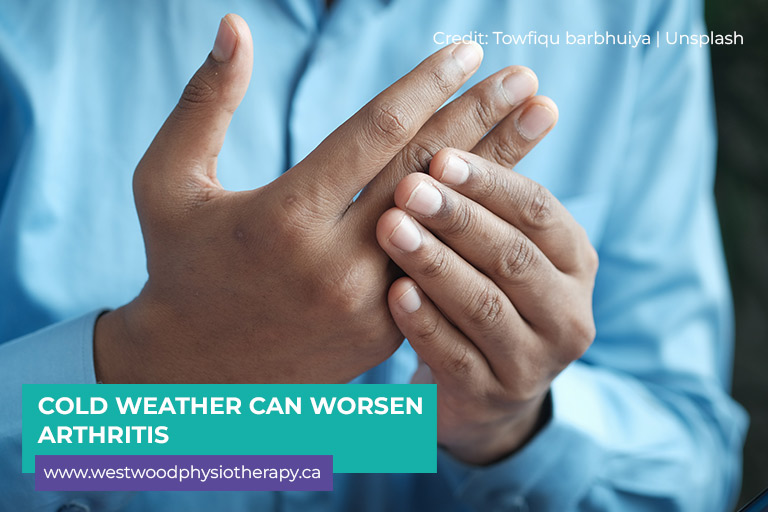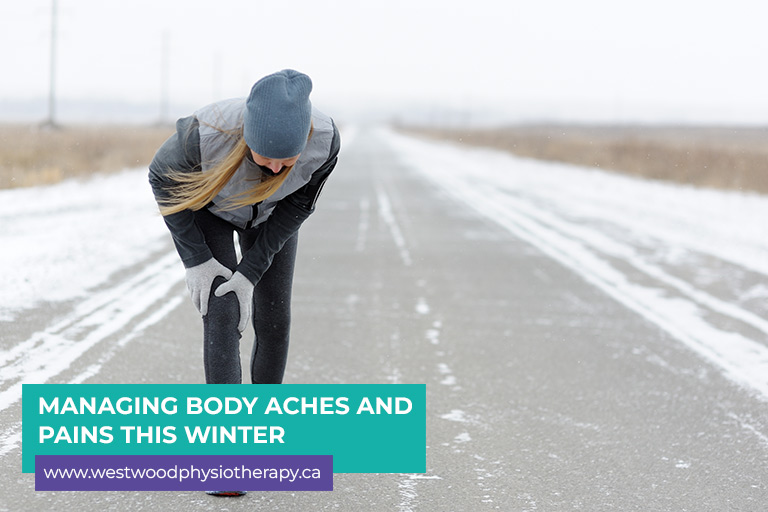It is once again that time of year. No matter where you look, you will be accosted by the sight and sound of sleighbells, Santas, and Christmas carols. Another common thing for some people to experience during this time of the year is the body ache due to the cold weather. Frequent questions that accompany the holidays include “Why do I get aches and pains in winter?” and “What helps with aches and pains in winter?”.
Why Does It Ache More During Winter?
Winter weather can make joints sore for a variety of reasons. Muscles naturally get tighter and tenser in the cold, reducing joint flexibility and mobility. Soreness, aches, and persistent pains can then be brought on by the contraction of muscles and the restriction of blood flow.
Recent research on pain has also shown that our perception of pain has a direct correlation with our mental state. We are more prone to experience greater amounts of physical discomfort when we are depressed, nervous, or agitated. We feel less discomfort when we are calm, supported, and content. Throughout the winter, we spend more time indoors, receive less sunlight, engage in fewer physical and social activities, and are beset by the cold, dark, and gloomy weather. This can consequently affect mood and heighten pain perception.
Common Conditions Affected by Cold Weather
For many health conditions, the colder temperature of this season can make discomfort feel much worse. Here are the 4 most common conditions caused by cold weather.
- Joint Pains
The most common health issue affecting the elderly in cold weather is joint pain and stiff muscles. The number of senior individuals seeking care for bone and joint issues increases by 50% throughout the winter.
- Arthritis

Another chronic condition that affects people in the winter is rheumatoid arthritis. Winter makes it more difficult to manage its symptoms, which include pain, edema, stiffness, exhaustion, and other typical arthritis symptoms.
- Cervical Spondylosis
People with cervical spondylosis, a disorder that affects the bones, discs, and joints of the neck, struggle as the winter months get colder. The reduced physical activity brought on by shorter days, less water consumption, and the winter’s cold weather make the bones ache and neck stiff considerably worse.
- Asthma
Cold weather can also cause asthma attacks because allergens are more prevalent throughout the winter. Asthma sufferers have delicate airways, which are made worse by cold or wet weather.
How to Manage Body Pains
During the winter, we become painfully aware of every ache and discomfort we feel. This is why many often search for home remedies for body pains due to the cold weather. Here are 8 winter remedies for joint pain relief to help you feel better during the freezing months:
1. Keep Moving
Even in the cold, it’s essential to remain physically active. In the winter, we frequently feel less driven and more eager to stay inside where it’s warm and comfortable. However, it’s crucial to keep your body moving. Your joints will stay healthy if you engage in low-impact exercises. Try weight training, yoga or Pilates stretching, brisk walking, or indoor swimming in a warm pool.
2. Avoid Winter Weight Gain
Winter and weight gain frequently go hand in hand. Healthy habits often revert around the holidays, and many people gain a few extra pounds. Even a little extra weight will start to impact your knees and other joints.
3. Dress For Cold Weather Success
Wear many layers and stay warm when you’re going outside in the cold. Even if joint discomfort is the root cause, cold fingers and toes often hurt and feel sore. In case of emergency, have a pair of gloves or mittens in your work bag and car. Store an extra pair of cozy socks so you can put them on if your feet start to become cold.
The right cold-weather attire alters how you feel about the winter season. Research on residents of regions with constant cold temperatures teaches us that being prepared can lessen the discomfort of the winter. Wearing warm clothing will make it more comfortable for you to walk outside, breathe fresh air, and exercise.
4. Stay Warm Indoors

Keep yourself warm and comfortable indoors. This will not only improve your mood but also enable you to continue going. Fix any drafts in your house and maintain a reasonable temperature for your heat. Some people discover that using a heating pad or hot water bottle will also relieve sore joints.
One word of advice: refrain from using heating pads and hot water bottles for an extended period of time, especially if you have diabetes or other health issues. Always use these heated devices in accordance with the manufacturer’s instructions and your doctor’s advice.
5. Soothe Your Senses
Because depression brought about by gloomy weather can increase pain sensitivity, one way to relieve your aches is to soothe your senses. Relax and engage in winter self-care to combat the winter blues as well as the pain.
Some people receive relief from joint or muscular discomfort by applying lotions, ointments, or salves. Even if these lotions with a “cooling effect” might not actually relieve pain, you could enjoy the way they make you feel. The tension in your body is also relieved by taking a warm bath and inhaling relaxing scents.
6. Drink Plenty of Water
Although staying hydrated is necessary year-round, the winter months are when it’s most crucial. When it’s sunny and pleasant, people tend to think they should drink more water, but in the winter, the dry air can leave you feeling drained, exhausted, and achy. Don’t forget to drink plenty of water!
Sipping a cup of warm tea is a great method to stay hydrated in the winter if you don’t like drinking plain water. Soup and bone broth are other hydrating choices. Aim for 8 glasses of water each day, more so if you exercise or stay active.
7. Eat a Healthy, Balanced Diet

Winter weather-related health issues become more prevalent when temperatures start to drop, so it’s important to know how to relieve body aches from the cold. You can keep your function and regain it with the aid of physiotherapy. Westwood Physiotherapy & Wellness is a team of physiotherapists in Guelph that offers a variety of treatment methods and services to help you heal and recover. Book your appointment today by calling us at (519) 341-5161.


